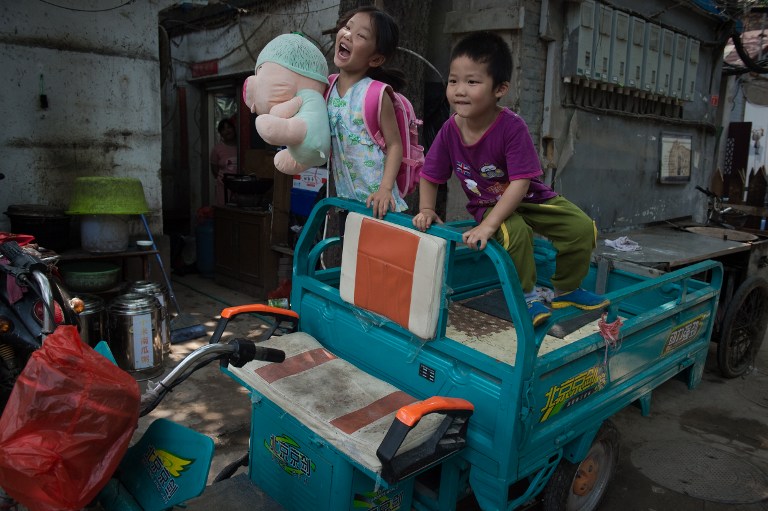The New York Times
By Chris Buckley and Jane Perlez
Beijing-The Chinese finance minister jabbed back at complaints from his American counterpart that China’s glut of factories making mountains of steel, aluminum and other products was overwhelming foreign markets and makers.
The finance minister, Lou Jiwei, suggested that foreign officials should curb their complaints about industrial production surpluses because their governments had cheered on China’s investment spree during the global financial crisis that began in 2008. That spree helped create the production gluts now worrying policy makers in Beijing and, increasingly, around the world.
“At that time, the whole world applauded and thanked China,” Mr. Lou told a news briefing near the end of a day of annual meetings in Beijing between senior Chinese and American officials. “Now they’re saying that China has a production glut that is a drag upon the world. But what did they say at the time?”
Mr. Lou was responding to questions about the Treasury Secretary Jacob J. Lew, who has complained that China’s huge surpluses were being sold so cheaply on international markets that they were distorting the global economy.
Mr. Lew emphasized those worries on Sunday at a university forum in Beijing, and he raised them again at the opening of the talks.
“The United States supports efforts to reduce excess capacity and leverage in the economy,” Mr. Lew said at the opening session of the talks, called the Strategic and Economic Dialogue, held this year on the grounds of the Diaoyutai State Guesthouse in Beijing.
“Excess capacity has a distorting and damaging effect on global markets,” he said. He added that defusing the problem was “critical to the function and stability of international markets.”
The talks also cover foreign policy and international security tensions, such as North Korea’s nuclear weapons and China’s territorial disputes with neighbors in the South China Sea. There was no sign of either side shifting its position in those disputes in the meeting’s opening remarks by President Xi Jinping and Secretary of State John Kerry.
But Mr. Kerry said the annual talks, which started in a smaller form a decade ago, remained “one of the best opportunities that we have to discuss our differences and to seek creative ways to narrow them or to eliminate them altogether.”
China’s exports of cut-price steel, aluminum and other products have become a contentious international issue, prompting anti-dumping tariffs and feeding into the American presidential race. Donald J. Trump and Bernie Sanders have both argued in their campaigns that blue-collar workers have lost jobs because of skewed trading rules.
This year, the Department of Commerce began putting heavy tariffs on some Chinese steel makers for selling below cost.
Mr. Lou (pronounced “low”) said there was nothing wrong with Mr. Lew raising the excess capacity problem in the talks. But he suggested that Mr. Lew had his eyes on critics back in the United States. “They’re under pressure domestically,” he said.
Mr. Lou said the Chinese government was now “squarely facing up” to the enormous amounts of unwanted industrial output. Beginning this year, President Xi Jinping and other leaders said that cutting that output was a crucial part of their program to reinvigorate growth.
The Communist Party leadership fears that sweeping industrial closings could kindle widespread worker protests like those that erupted in several northeastern rust belt cities in 2002.
Mr. Lou also told reporters that the Chinese government had no estimate of the numbers of workers who would have to be laid off from steel mills, mines and other industrial plants as part of that growth program. A labor official said this year that cutbacks in the steel and coal sectors alone could lead to layoffs of 1.8 million workers.
Mr. Lou declined to offer his own figure, citing as one example the number of factories in private hands, which tend to have fewer workers than China’s state-owned mills. The government cannot control the economy through central planning in the way it once did, Mr. Lou said. “So it’s very hard to estimate how many people you reduce if you reduce steel production by 10,000 tons.”
But Scott Kennedy, a researcher on Chinese economy policy, said at a presentation in Beijing that the hand of the state still meddled too much in deciding winners and losers in sectors ranging from new technologies to improving the environment.
The result was “inefficient growth,” Mr. Kennedy, from the Center for Strategic and International Studies in Washington, said in presenting a new report about China’s latest five-year economic growth plan.
“There is a lot of genuflecting to the market,” he said. “But when you get to the reality the plan is far less ambitious.”
